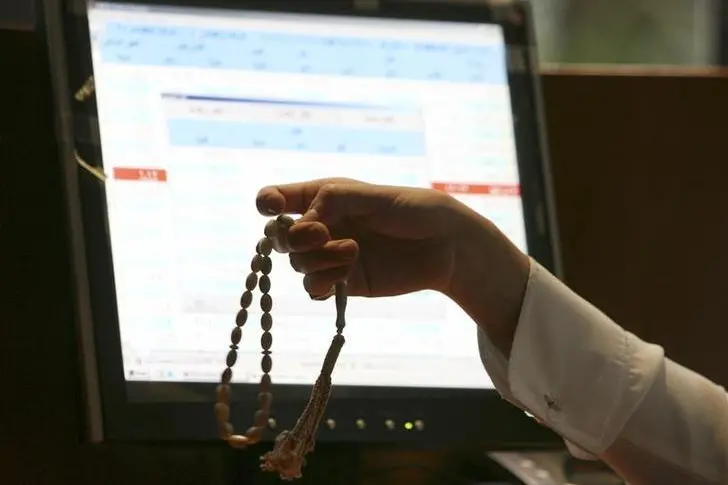PHOTO
Islamic trade finance is poised for change with the launch of new products and common standards as Islamic banks look to grab market share away from traditional lenders which are retreating from the sector because of regulatory constraints.
Islamic banks have been laggards in trade finance but some see a business opportunity, attracted by strong global trade growth in regions where Islamic banks are active such as Southeast Asia, North Africa and the Middle East.
Digital tools such as blockchain can support this by helping to lower costs and speed up sharia-compliant transactions, the Bahrain-based General Council for Islamic Banks and Financial Institutions (CIBAFI) said in a report out on Monday.
"Financial engineering is a segment where Islamic banks and Islamic financial institutions need to deploy the required resources to develop trade finance products responding to the fast-changing market dynamics," it said.
Islamic trade finance is estimated at around $186 billion, compared to the $4.4 trillion worth of trade finance activity in Muslim-majority countries, CIBAFI said.
Some firms are now introducing digital Islamic trade finance platforms, including Emirates Islamic Bank which has launched an online supply chain tool, CIBAFI said.
Most sharia-compliant trade contracts are based on four Islamic structures, but the market is exploring new products such as bank payment obligations, trust receipts, shipping guarantees and acceptance bills, CIBAFI added.
There is also a push towards standardisation of practices.
The Bankers Association for Finance and Trade (BAFT) and the Manama-based International Islamic Financial Market (IIFM) are developing standard documentation for both Islamic-funded and unfunded trade finance deals.
The standard is important because trade finance transactions tend to be bigger than most and the arranging bank cannot always bear the full risk due to exposure and diversification limits, IIFM chief executive Ijlal Ahmed Alvi told Reuters.
"We are receiving a good response from banks in the market consultation phase and we expect to complete this exercise by end of summer."
Global banks have been ending correspondent relationships in response to consolidation, low profits and concerns over tougher anti-money laundering rules, a policy known as "de-risking".
This is encouraging specialised firms to step in and fill the void, including an Islamic trade finance fund managed by London-based Rasmala Investment Bank.
The fund, launched in 2014, now has over $250 million in assets, up from $100 million in September and it could reach $500 million by year-end, Rasmala said.
"Many major banks continue to retreat from this type of lending and we don't foresee that changing for some time to come."
(Reporting by Bernardo Vizcaino; Editing by Eric Meijer) ((Bernardo.Vizcaino@thomsonreuters.com; Telf: +61293218168; Reuters Messaging: bernardo.vizcaino.thomsonreuters.com@reuters.net))





















